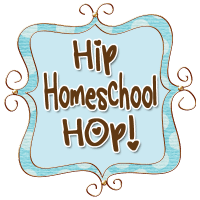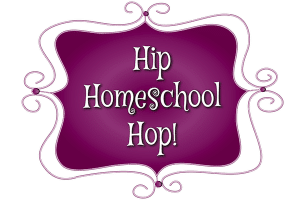An In-Real-Life Look at Unschooling
If you know me very well at all, you might be a bit perplexed to hear me say that we are unschoolers. I am very much a rule follower, and unschooling pretty much breaks all the rules. At least, this learning style breaks the ‘shoulds’ mold that I have created for myself over the years. Many ideas I had about what learning should look like have changed as we have continued homeschooling. After 9 years of home educating, our days look much different than they did at the beginning.

Many people have the wrong impression of unschooling. You may be one of them. Unschooling, to me, does not mean undisciplined.
Something I have read over at Holt GWS,
“Unschooling is NOT un-parenting.”
I completely agree! We still have rules for our home for the children’s behavior; we teach our children as best we can about God and His love, how to treat one another and others, and we give our children responsibilities around the house, such as washing dishes, taking out the trash, babysitting their siblings, weeding, mowing the grass, and working in the garden.
John Holt defined unschooling like this:
“When pressed, I define unschooling as allowing children as much freedom to learn in the world, as their parents can comfortably bear.”
This is the definition that our family has basically followed. We did not always unschool. I started out with Charlotte Mason for one child and textbooks for another. As we fell into unschooling through circumstance, we learned that we enjoyed it and that our children were excelling in the areas where we allowed them more freedom to control their learning. It has been a journey of letting go, re-defining what learning means and looks like, and learning to trust that my children do want to learn and will when given the tools to do so.
I now describe myself as a facilitator. I am not a teacher. Generally, my children do not sit at desks, I do not give lectures on topics, and we do not take tests. However, there are occasions when we might do those things. Perhaps we attend church and hear a ‘lecture’ there. Or we may have an opportunity to participate in convocation at a local university and hear a well-known author speak. Sometimes we go to co-op and the children do sit at desks or tables and listen to a teacher figure speak about a given topic. We are required by our state to give standardized tests each year, so we will engage in test-taking each May for a time. But that is not what our home looks like on a daily basis. We are not doing school at home. We are living a lifestyle of learning, and that can look different on any day than it did on a previous day and will not likely look the same again tomorrow.
Here are a few examples of learning opportunities which my children have taken part in so far this year in our home or in our community in an effort to pursue an interest:
- maintaining a photography blog
- advanced drawing classes
- writing a novel
- avidly reading about writing, self-publishing, character development, and more
- entering Lego contests (building challenges)
- fan-fiction writing online
- entering writing contests
- researching the middle ages in order to create authentic characters and places for a novel
- role playing of stories we have read
- writing as a teen contributor for a homeschool blog
- attending Sunday night high school services at our church
- writing a guest post for a homeschool blog
- learning letters and numbers through sidewalk chalk play
- ballet
- marker drawing class
- participating member of the high school worship team
- learning to read
- Boggle, Scrabble, and 7 Wonders (all games we love!)
- serving at church in the cafe, children’s ministry, as a member of the aquarium team or snow removal team
There is a lot more that goes on, but I think you get the picture. You may notice that many of the activities on this list are no different from those on a list you might create for yourself. Many homeschoolers participate in a lot of the same activities. However, you’ll also see that I did not mention following a curriculum, or practicing reading instruction 3 times a week, or having PE class every afternoon. There is nothing wrong with any of those things, and if they work for you, great! It’s not that we don’t use textbooks, living books, art classes, ballet instruction, science experiments, worksheets, or games to learn. We do. Unschooling is more about the method.
How do we facilitate this learning?
In our family, we approach learning as a lifestyle. It can and does happen at any time. My husband recently built a motor out of a battery, a copper wire, and a magnet. He’s an engineer and thought it would be fun for the kids to see. They were amazed! Oh, and this was not a 45 minute class he taught; it all took place in the space of about 10 minutes on a Saturday morning!
On another occasion, when preparing dinner, I needed to quickly cool down the noodles for our pasta salad. I placed them in a bowl and directly into the freezer. My plan had been to take them out after about five minutes but I ended up waiting about fifteen minutes because I was busy with other things. When I took the bowl out it looked as if snow had fallen in our freezer! There were tiny flakes all over the noodles. I showed the kids and we immediately began researching. It turns out, we created hoar frost with the steam in the cold-temperature environment of our freezer.
As my son began reading the book Pygmalion for his literature class this spring, he mentioned that the accent was a bit different and difficult to read. I immediately searched for ‘how to do a cockney accent’ and found this video where a guy from London gives examples of how to say various phrases using this accent. It gave us just a bit of knowledge about the cockney accent, and hearing an actual Londoner speaking it was a huge help!
One of the biggest interests my two eldest children have pursued has been art. They have been reading about it, watching videos, and trying different mediums since we first began homeschooling nine years ago. The first six years they were completely self-taught, but now they are heading into their fourth year of lessons with an excellent teacher through our co-op this fall. I did not have the ability to teach them this skill. They had the interests, have developed the skills needed, and continue to show the drive to hone their craft and improve their knowledge in this area of art and drawing that has become such a passion for them.
These are just a few examples of what unschooling can look like. It will look different in your home. There may be some who would tell you that we are not true unschoolers. That is okay. I go back to that definition I shared earlier from John Holt. We do what we can bear at the time. It is a progression and wherever you are on that spectrum, it is okay. Read, learn, talk to those who are in the trenches of unschooling. You will get to the place where God wants you to be, and that is the only thing, the only opinion, with which you really ever need to be concerned!









Thanks for the inspiring post. One of my goals for this year is to experiment with unschooling. I entered our homeschool journey committed to a strict textbook education. Over time, I have seen the strengths and weaknesses of that approach. While I will certainly keep using the textbooks in the areas that are working for us, I want to give my children more freedom to explore in others. When they grow up, no one is ever going to ask them how many spelling worksheets they completed!